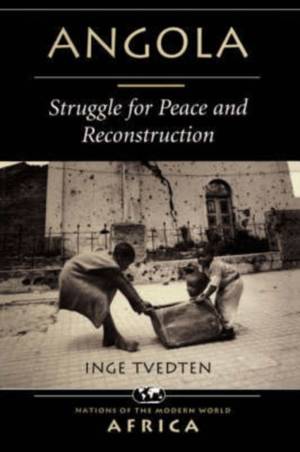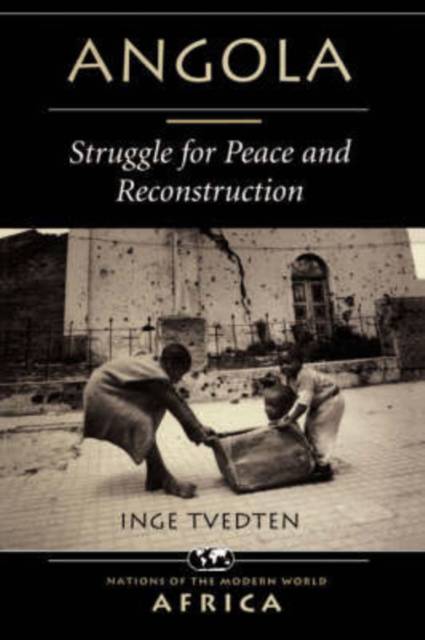
- Afhalen na 1 uur in een winkel met voorraad
- Gratis thuislevering in België vanaf € 30
- Ruim aanbod met 7 miljoen producten
- Afhalen na 1 uur in een winkel met voorraad
- Gratis thuislevering in België vanaf € 30
- Ruim aanbod met 7 miljoen producten
Zoeken
Omschrijving
After more than twenty years of devastating civil war, Angola is slowly moving toward peace and reconciliation. In this accessible introduction to one of the most resource-rich countries in Africa, Inge Tvedten traces Angola's turbulent past with a particular focus on the effects of political and economic upheaval on the Angolan people. First, Tvedten reviews five centuries of Portuguese colonial rule, which drained Angola's resources through slavery and exploitation. Next, he turns to the postindependence period, during which the country became a Cold War staging ground and its attempts to democratize collapsed when the rebel movement UNITA (until then supported by the United States) took the country back to war after electoral defeat. Tvedten shows how the colonial legacy and decades of war turned Angola into one of the ten poorest countries in the world in terms of socioeconomic indicators, despite its possessing considerable oil resources, huge hydroelectric potential, vast and fertile agricultural lands, and some of Africa's most productive fishing waters. Finally, Tvedten argues that peace and prosperity for Angola are possible, but constructive international support will be crucial to its achievement.
Specificaties
Betrokkenen
- Auteur(s):
- Uitgeverij:
Inhoud
- Aantal bladzijden:
- 180
- Taal:
- Engels
- Reeks:
Eigenschappen
- Productcode (EAN):
- 9780813333359
- Verschijningsdatum:
- 20/06/1997
- Uitvoering:
- Paperback
- Formaat:
- Trade paperback (VS)
- Afmetingen:
- 153 mm x 229 mm
- Gewicht:
- 235 g

Alleen bij Standaard Boekhandel
+ 180 punten op je klantenkaart van Standaard Boekhandel
Beoordelingen
We publiceren alleen reviews die voldoen aan de voorwaarden voor reviews. Bekijk onze voorwaarden voor reviews.











